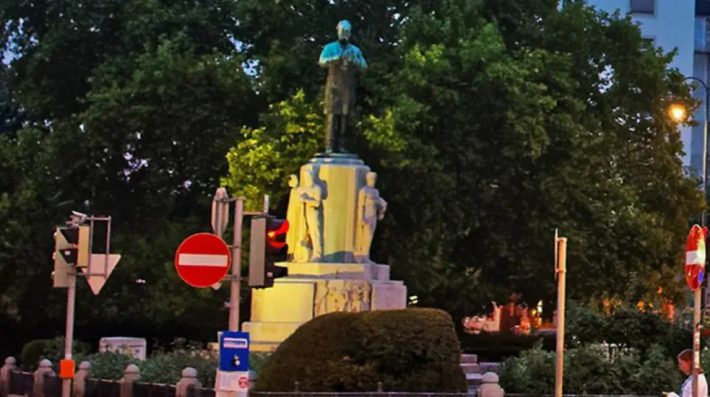Vienna’s antisemitic mayor Karl Lueger inspired a young Hitler — today, left-leaning Western leaders risk repeating his tactics by weaponizing anti-Israel sentiment for political gain.
In 1897, Karl Lueger became mayor of Vienna — a city with a thriving Jewish community dating back to the 12th century. His rise was anything but smooth: Emperor Franz Joseph blocked his appointment four times, citing Lueger’s dangerous populism and virulent antisemitism. Only after Pope Leo XIII personally intervened did Lueger take office, transforming Vienna into a modern, elegant capital of music, art, and learning.
Vienna’s Jewish community, with luminaries like Sigmund Freud, Gustav Mahler, Arthur Schnitzler, Stefan Zweig, and Theodor Herzl, played a pivotal role in the city’s cultural boom. But Lueger’s antisemitism deeply disturbed Herzl, who met him repeatedly to seek support for Jewish emigration to Palestine — all to no avail.
A lawyer known as “the little people’s advocate”, Lueger had once been close to Ignaz Mandl, a popular Jewish doctor-politician dubbed “god of the little people.” That friendship ended when Lueger discovered that crude antisemitism was a political goldmine. On the campaign trail, he relentlessly invoked the “Jewish Question,” making hatred of Jews an electoral necessity in fin-de-siècle Austrian politics.
It worked — spectacularly. Among his admirers was a young Adolf Hitler, who later praised Lueger in Mein Kampf. Hitler learned well: whip up national pride, galvanize the masses with a scapegoat, and ride the wave to power. The result? The catastrophic destruction of Germany and Austria — a lesson Nazi-sympathizing Palestinian nationalists conveniently ignore.
The hypocrisy was staggering. Lueger maintained Jewish friends, dismissing critics with his infamous quip: “I decide who is Jewish.” He could publicly incite against Jews while privately embracing individuals he deemed politically useful — a playbook with unsettling echoes today.
Modern parallels abound. In New York, mayoral candidate Zohran Mamdani — a vocal supporter of the “global intifada” — enjoys the backing of some non-Orthodox Jews. Across the West, left-leaning governments from Spain, Ireland, the UK, Canada, Australia, France, and beyond court growing Muslim electorates by tolerating or embracing anti-Israel agitation. Public displays like the Sydney Harbour Bridge marches, complete with keffiyehs and anti-Zionist chants, have romanticized Palestinian nationalism while normalizing hostility toward Israel.
Lueger’s Vienna is gone — its grace and order replaced by the urban decline now visible in London, Paris, Berlin, Amsterdam, Brussels, and Stockholm. Changing demographics, low fertility, poverty, and cultural fragmentation have coincided with a surge in antisemitism. Like Lueger, leaders such as Emmanuel Macron, Keir Starmer, Mark Carney, Anthony Albanese and others recognize that rousing the crowd — even at the expense of Jews — can be a winning formula.
Incredibly, in a post-Holocaust world, demonizing the Jewish state has become politically fashionable. As Rabbi Shmuley Boteach recently learned when assaulted in the UK for wearing a kippah — only to be treated as the aggressor — antisemitism now wears the mask of “progressive” politics.
Over a century ago, during Lueger’s era, the phrase was coined: “Antisemitism is the socialism of fools.” It seems too many of today’s leaders never learned — or never cared — what it meant.





